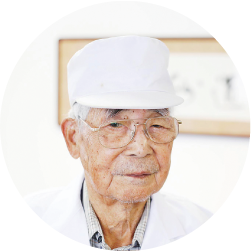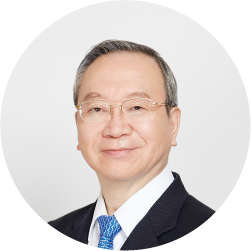

Good health is an aspiration universal to humankind, and the effort to respect and cherish life is the most fundamental of all challenges.
Food is indispensable to human sustenance, yet war sunders its supply. I experienced war’s barbarity firsthand, and I began searching for highly nutritious food that is readily portable. This eventually led me to oysters.
At times known as “sea milk” in the West and “treasure of the sea” in the East, oysters have been prized over the centuries for its taste and nutritional value. Takeda Shingen, a feudal Japanese warlord, was a renowned oyster aficionado, for example. In China, oyster meat was recognized for its health enhancement properties since the 14th century, when it appeared in the Compendium of Materia Medica authored by Li Shizhen.
Oysters, of course, are only edible on a seasonal basis. Which is why I began looking into ways to make their abundant benefits available year-round. Over the next 30-some years, I successfully isolated and condensed enriched extracts of active oyster nutrients in powder form. This is how Japan’s first oyster meat extract supplement came into being in 1967.
In July 2004, Peking University Hospital recognized my work in developing oyster meat tablets in Japan, awarding me for my contribution to public health.
My goal is to continue offering the finest and most effective health supplement products based on oyster meat in the years ahead. That, I believe, is Watanabe Oyster Laboratory’s timeless task and mission.

Visiting Professor, Faculty of Health Sciences, Hokkaido University
Academic Advisor for Medical Health at Peking University Hospital
Vice-Chaiman, The Japanese Institute for Health Food Standards (JIHFS)
Specially appointed member of General Incorporated Association Japan Mibyou
Association
Japanese Chapter Director/ Steering Committee of the World Oyster
Society
Ph.D in Medicine from Hokkaido University
Ph.D in Animal Husbandry from Tokyo University of Agriculture
I believe mutual trust among people can be deepened, sustained and developed when endeavors are founded on the principle of life’s inherent dignity and worth, paving the way for creative expressions of culture. This belief is reflected in Watanabe Oyster Laboratory’s corporate vision to create a culture of wellbeing informed by humanistic values with the aim of improving the overall quality of life.
It is what drives us as a healthcare enterprise to create a culture in the service of public health in an effort to better society. It is what inspires every one of our employees as they embrace our corporate vision and strive to play a prominent role in its realization.
Equally important, WOL’s vision and activities have earned high praise from our partner universities and research agencies, as well as from our longstanding clients and affiliated companies. This, in turn, has led to a steadily expanding network that drives mutual development.
The path to bettering humankind, I believe, lies in facilitating the mutual inspiration and integration of Western knowledge and Eastern wisdom—and through this process, bring about a loftier, more humane culture.
Among our research successes has been to scientifically prove the efficacy of oyster meat, which until then had been accepted for centuries but never validated on an empirical basis. This achievement has been widely published in international academic journals recognized for their high impact factor. We also organize academic lectures and conferences to promote a wider recognition of the nutritional benefits of oyster meat.
This—together with our superior products—represents the WOL Way as part of our total commitment to improving the welfare and wellbeing of people everywhere.